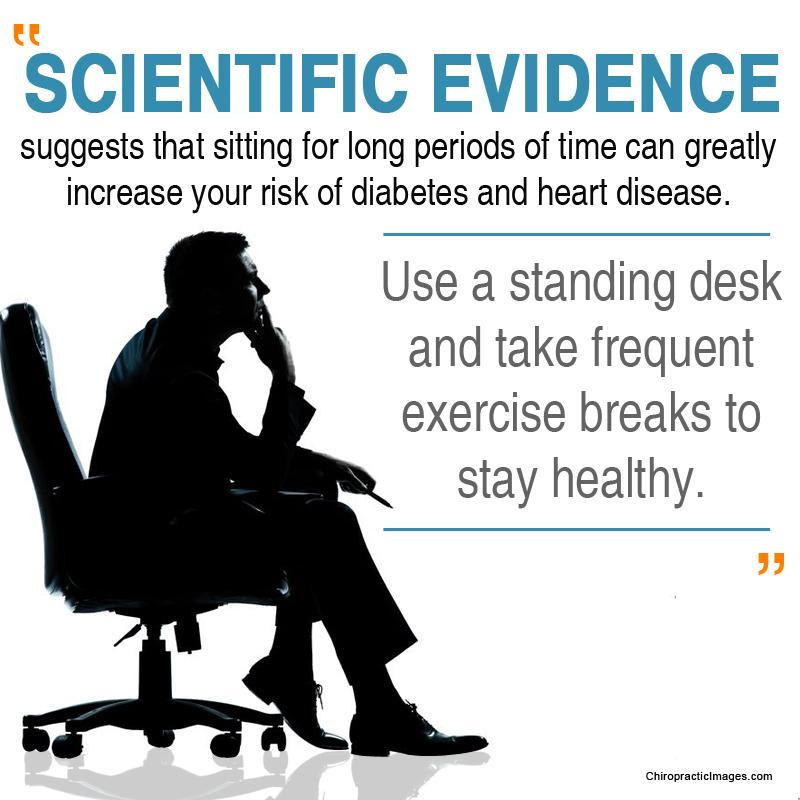Your Ann Arbor Chiropractor's Take on the Benefits of Standing Desks
- posted: Aug. 25, 2023
In today's fast-paced world, where most of us spend long hours at desks, our musculoskeletal health often takes a backseat. Sedentary lifestyles, combined with poor posture, can lead to a myriad of health issues, ranging from muscle tension to chronic pain. However, a simple yet powerful solution is gaining momentum – the standing desk. As a chiropractor, I've witnessed firsthand the transformative effects of standing desks on musculoskeletal disorders, postural issues, and dysfunction. In this article, we'll delve into the numerous benefits of standing desks from a chiropractor's perspective.

The Downside of Prolonged Sitting
Sitting for extended periods places tremendous stress on our bodies. It can lead to the development of musculoskeletal disorders, including:
- Lower Back Pain: Sitting for long durations can weaken the muscles that support the lower back, leading to pain and discomfort.
- Neck and Shoulder Tension: Poor sitting posture often causes the head to jut forward, straining the neck and shoulders.
- Poor Circulation: Sitting hampers blood circulation, increasing the risk of varicose veins and deep vein thrombosis.
- Muscle Imbalances: Prolonged sitting can lead to muscle imbalances, as certain muscles become tight and others weaken.
The Role of Standing Desks
Standing desks offer a range of benefits that directly counteract these issues:
- Improved Posture: When standing, it's easier to maintain a neutral spine alignment, reducing the risk of poor posture-related issues.
- Reduced Lower Back Pain: Standing engages the core muscles and supports the lower back, alleviating pain caused by prolonged sitting.
- Enhanced Blood Circulation: Standing encourages better blood flow, reducing the risk of circulatory problems and promoting healthier veins.
- Engaged Muscles: Standing naturally activates various muscle groups, preventing muscle imbalances and weakness.
- Reduced Risk of Obesity: Standing burns more calories compared to sitting, helping to maintain a healthy weight and reducing the risk of obesity-related disorders.
Preventing Musculoskeletal Disorders
Musculoskeletal disorders can have a significant impact on our quality of life. Incorporating a standing desk can contribute to preventing and managing these disorders:
- Degenerative Disc Disease: Standing reduces the pressure on spinal discs, slowing down their degeneration.
- Herniated Discs: Proper ergonomics at a standing desk can alleviate pressure on intervertebral discs, decreasing the risk of herniation.
- Sciatica: By avoiding excessive pressure on the sciatic nerve, standing desks can help prevent or ease sciatic pain.
- Kyphosis and Lordosis: Standing supports the natural curves of the spine, reducing the risk of excessive curvature associated with these conditions.
Tips for a Smooth Transition
Transitioning to a standing desk requires some adjustments:
- Gradual Increase: Begin by standing for shorter periods and gradually increase the duration over time.
- Proper Ergonomics: Ensure your desk, monitor, and keyboard are at the correct height to maintain neutral wrist and spine positions.
- Comfortable Footwear: Invest in supportive shoes or anti-fatigue mats to reduce strain on your feet and legs.
- Movement: Shift your weight, take short walks, and perform simple stretches to keep your muscles engaged and prevent stiffness.
As a chiropractor, I wholeheartedly advocate for the adoption of standing desks to counteract the negative impacts of prolonged sitting. By improving posture, enhancing circulation, and engaging muscles, these desks offer a proactive approach to preventing musculoskeletal disorders and postural dysfunction. Remember, the key lies in moderation – alternate between sitting and standing throughout the day, and listen to your body's cues. Your musculoskeletal health is an investment that pays off in lifelong well-being. So, why not stand up for your health and elevate your life?
Monday
9:00 AM - 1:00 PM
3:00 PM - 6:00 PM
Tuesday
9:00 AM - 1:00 PM
3:00 PM - 6:00 PM
Wednesday
9:00 AM - 1:00 PM
3:00 PM - 6:00 PM
Thursday
9:00 AM - 1:00 PM
3:00 PM - 6:00 PM
Friday
Closed
Saturday
Closed
Sunday
Closed
Come Visit Us
2330 E Stadium Blvd #3
Ann Arbor, MI 48104, United States

